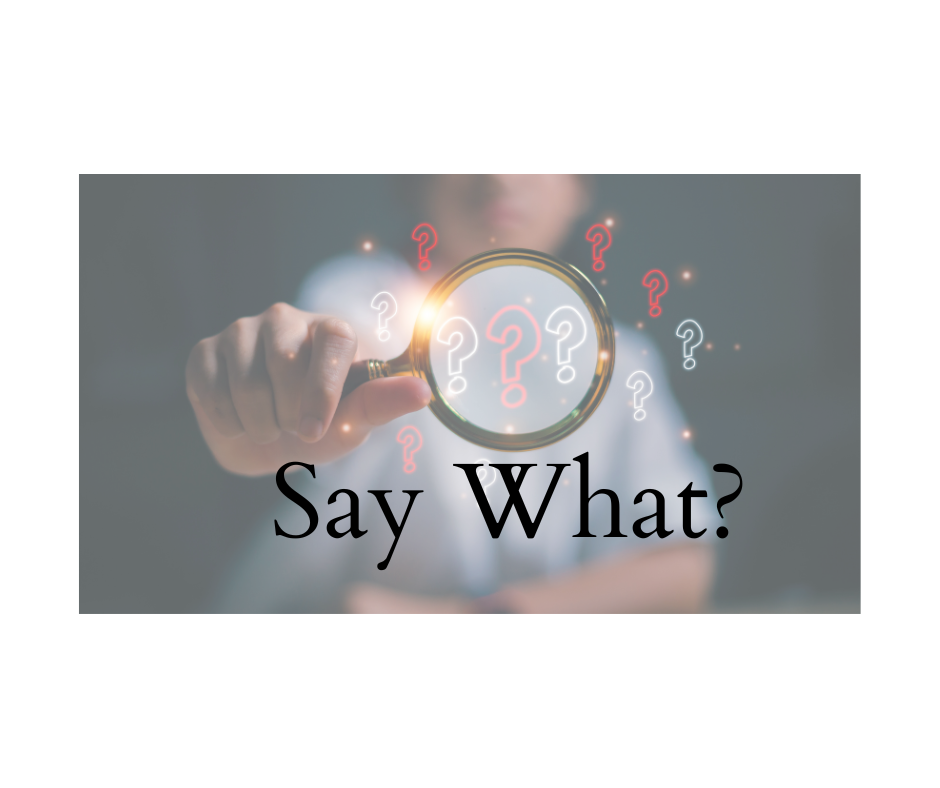Are You in the Subjunctive Mood?
I’m going to spend a few posts on what I think is an interesting and sometimes confusing component of our language: the subjunctive mood.
Contrary to what some say, the subjunctive is not a tense; it’s a mood. Tense refers to when an action takes place (past, present, future), while mood merely reflects how the speaker feels about the action. When deciding whether to use this “mood” or not, a writer needs to stop and think about the intent in the sentence she wants to write. I often see the subjunctive used incorrectly, or not used when it should be.
The subjunctive mood is rarely used in English, but it is widely used in Spanish and other languages. Subjunctive forms of verbs are typically used to express various states of unreality such as wish, emotion, possibility, judgment, opinion, necessity, or action that has not yet occurred.
Let’s start with a simple comparison. English verbs have three moods: indicative, imperative, and subjunctive.
- I will go to sleep now. Do you want to go to sleep now? (Indicative mood: used to state a fact or opinion or ask a question)
- Go to sleep now! Please, go to sleep now. (Imperative mood: expresses a command, gives a direction, or makes a request)
- If I were you, I would go to sleep now. (Subjunctive mood: expresses wishes, suggestions, and other attitudes)
Forming the subjunctive mood in present tense is very simple—use the base form of the verb regardless of the subject.
- My teacher insisted that I study harder.
Here’s the tricky part—just when do you use the subjunctive? You want to use it with contrary-to-fact clauses that state imaginary or hypothetical conditions (often called conditional statements). Such statements usually begin with if (or unless) or follow the verb wish.
For present contrary-to-fact clauses, use the verb’s past tense; if the verb is to be, use were.
- If I were rich and had a yacht, I would cruise all over the world.
- I wish I were wise and beautiful, but I am stupid and ugly.
I hope this first lesson has been easy to understand. If I were brilliant, I would have explained this better.








If I were honest, I’d say you are definitely brilliant. Oh, wait. I am. And you are. 🙂 Great explanation that actually makes sense. Thank you!
LOL thanks!
[Scream of delight] Yeah! It’s so nice to read a good explanation. I taught Spanish for 31 years and spent a good deal of time teaching the subjunctive. I used to introduce the concept by writing on the board “he be” and “I were” and asking the kids if those were acceptable English phrases. Of course they’d say no. I’d add to the blackboard (whiteboard later) and turn them into “I insist that he be on time” and “I wish I were in Dixie.” It was a shaky jumping off point since students are never made aware of it in English class. Do you think the subjunctive will eventually die out in English? I always heard it was heading that way.
Thanks! I’m not sure about it dying. People seem to use it all the time. I think I encounter it being overused (used when it’s not needed) more often than the reverse. I just find the whole topic intriguing, since it’s a mood, and therefore it’s left up to the writer to decide on its appropriateness.
What a great post as always. I just love the subjunctive mood and am sorry it is so little used in English. Of course in many other languages, it’s not considered ‘rarefied’ as it now seems to be in English. There is a lovely song by the late and great John Martyn “May you never lay your head down”, which captures this mood perfectly. Well done again to you Suzanne.
Lara
I love it! Someone who not only understands the subjunctive but uses it. Thanks for a clearly clever explanation. If I were a writer, I”d kiss you. Wait a minute. I am but I won’t!
Still loved your post.
Don’t get too brilliant, please. Your less brilliant stuff is fine.
This is great, I wasn’t even fully aware that the English language had a subjunctive. I struggled with the subjunctive whilst learning French but your explanation of what it is and when it should be used is a lot clearer than any I have previously come across. Thank you for shining a light on that woolly and slightly vague mood ‘tense’, the subjunctive.
Heya, i’m having a hard time finding out about whether this particular usage of a sentence is correct. I haven’t been able to find any examples on the Internet about “If there were…” Only examples of “If he/she/it were…”
Any advice will be appreciated!
The context is this:
Person A has to complete 2 forms (Form 1 and Form 2) for an inspection.
Person A says, “I have my Form 2!”
Person B says, “What about Form 3?” (a hypothetical, non-existent form)
Person A says, “If there WERE a Form 3, it would probably be the inspection papers from Canadian Tire.”
Person B corrects “WERE” to “WAS”.
Is Person A incorrect in their usage? Is that correct subjunctive?
Thanks much!
I’d go with the subjunctive since it’s hypothetical. Thing is, this is called “a mood,” not a rule, so you have to go with what feels right. Using “was” wouldn’t be wrong, just feel different. But generally you would not use the subjunctive if what is suggested is more in the realm of reality. If there truly was a form, for instance.